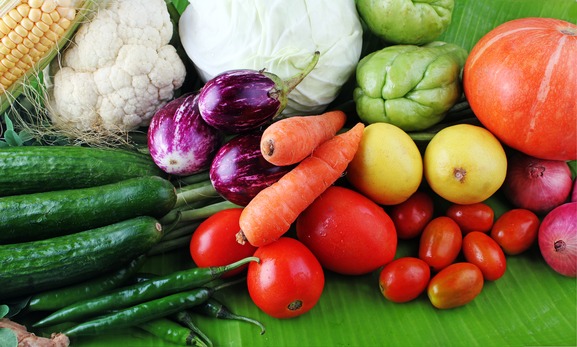‘Cloudy With a Chance of Meatballs’ might have been a visually imaginative, animated movie filled with a lot of spirit and goofy humor. But hey, when some fiddling in the makeshift lab can thrust a food-creation machine off into orbit for some ‘foody rain’, so can some scientists at the US National Center for Atmospheric Research (NCAR) and Columbia University. Of course, they don’t forecast a meaty shower but they surely have worked their way to generate local forecasts of seasonal influenza outbreaks.
Thanks to technology from the meteorological world, a system can be developed to estimate the chances of regional influenza outbreaks, fortunately, several weeks in advance. You will soon be tuning into flu forecasts rather than simply a weather forecast for your city. Although still in the infancy, the new flu forecasting system would be a boon for public health officials and the world population.
Discovery Of The Flu Forecasting Model
A ground-breaking study published recently in the Proceedings of the National Academy of Science, reveals that researchers at Columbia University and the National Center for Atmospheric Research have developed a model that monitors a lethal force of nature – influenza epidemics. Just as weather systems are chaotic, flu transmission changes through time like a butterfly effect. A mathematical model is developed by considering known influences on the system’s behavior such as pervasiveness of virus and humidity levels along with real time observations of prevailing epidemic progressions and statistical data assimilation methods.

Researchers rely on real-time statistics from the Centers for Disease Control and Prevention (CDC) and Google Flu Trends to make future disease predictions. With this kind of forecasting, annual flu outbreaks can be better managed with vaccines and anti-viral drugs. The same study reviewed how flu outbreaks have been forecasted in New York City through 2003 to 2008 using the developed model. It was deciphered that real-time predictions can be made at least more than seven weeks in advance of the actual peak.
Disease Forecasting Is Not New
Scientists have been previously using weather models and forecasts to predict flu seasons and other illnesses. For instance, researchers at Johns Hopkins University predicted outbreaks of Hantavirus in the late 1990s using rain and snow data. Another study involved generating ‘risk maps’ for Rift Valley fever in east Africa based on rainfall predictions from measuring sea-surface temperatures and cloud density.
Two Cents On Future Flu Forecasts
With influenza affecting about 10 million people worldwide and killing 250,000 to 500,000 victims, flu forecasting can go long way in minimizing epidemics. Tremendous amount of work has yet to be done to perfect the flu forecasting model just as the crude weather forecasting when it first started.
A few years down the road if you look for weather forecasts, you will surely get a handful of stats including wind chill, UV index, pollen count, air quality measures and seasonal flu risks. Keep the influenza virus at bay with innovative flu forecasts – Cloudy with a 50% chance of flu next month!

kay, rampant carnivores, it’s time to chuck away the pitchforks. You’ll need to put out those flaming torches too. Quit glaring at the harmless vegetables on your plate. Yes, that means you, meat-lover. It’s over. Stop picking on your vegetables. We mean it.
Before you start complaining, take a deep breath and consider what we have to say. We understand that your opinion to date has largely entailed vegetables being a necessary evil. On your plate social hierarchy, vegetables are at the bottom of the ladder. They have to be there (everyone says so) but that doesn’t mean you have to like it. Besides, they don’t taste like anything and they don’t feel half as good to eat as a big chunk of mouthwatering steak. Right?
Well, actually, dear carnivore friend, your knowledge and opinion may just have become a little … er, archaic. The reality is that not only are vegetables the new cool kids on the block, but they’re actually the firemen of the health world too. Not sure what we mean? Read on and discover why your battle with veggies may be reaching an end.
Veggie superheroes
A landmark study published in the American Journal of Clinical Nutrition has revealed that a vegetarian diet reduces your risk of heart disease by over thirty two per cent. According to the study:
- Compared to meat eaters, vegetarians have healthier hearts.
- Vegetarians have lower blood pressure and better cholesterol levels than meat eaters.
- Vegetarians have a lower body mass index than carnivores.
- Vegetarians experienced lower incidents and risks of diabetes.
With heart disease killing a whopping 600,000 Americans each year, you can see why vegetables are now being crowned the superheroes of the food world. They are literally putting out the fires of cardiovascular disease and saving lives all over the place. Hurrah! So how are they doing it? What exactly is it about vegetables that are so beneficial?
The veggies’ guide to saving lives
The reality is that there are entire books written on the various health benefits of different vegetables. So to keep it short and sweet, here are a few overarching benefits associated with a diet in high in fruit and vegetables.
- Disease prevention.
- Promotes good bone health.
- Low in fat but loaded with vitamins and minerals.
- Contain an abundance of antioxidants that combat harmful chemicals in the body.
- Packed with fiber.
- Helps to maintain a healthy weight.
- Aids digestion.
- Stabilizes mood and reduces stress.
- Improves memory.
- Boosts energy.
And last but not least– according to researchers at the University of Nottingham, consuming vegetables can even make you look more attractive to others. Impressive, huh?
Carnivore Chaos
So, where does that leave the meat-eaters? Must they now concede defeat in the great nutrition war and bow down to vegetables? Well, not necessarily. But let’s look at both sides of the story.
In 2010, The Department of Health advised that by reducing their intake of red meat, individuals were able to decrease their risk of bowel cancer. According to many experts, red meat had also been connected to an increase in chronic diseases such as cancer and cardiovascular disease. Typically too, red meat-eaters have higher levels of cholesterol and higher blood pressure.
While this may sound depressing for all of you meat-lovers, did you notice the keyword in those studies? Red. Diets that are high in red meat are often linked to an assortment of health conditions and diseases. But experts such as Dr. Peter McCullough from St. John Providence Health System in Michigan, recommend that rather than removing meat entirely, by choosing the right types of meats individuals can maintain a healthy and nutritious diet. He suggests limiting sodium and saturated fat intake and trying smaller portion sizes. According to his research, the best protein to eat is fish, followed by beans and nuts. So while there are definitely some advantages to living a vegetarian lifestyle, there is still an undisputed need for protein in our diet.
See, vegetarians and meat-eaters can live together in peace and harmony. To sustain a healthy diet, we must choose foods that add value to our nutrition. This means consuming a combination of fruit, vegetables, proteins and fats. So, dear carnivore, next time you see a vegetable on your plate, why not give it a little smile for fighting the fires of heart disease in your body?


